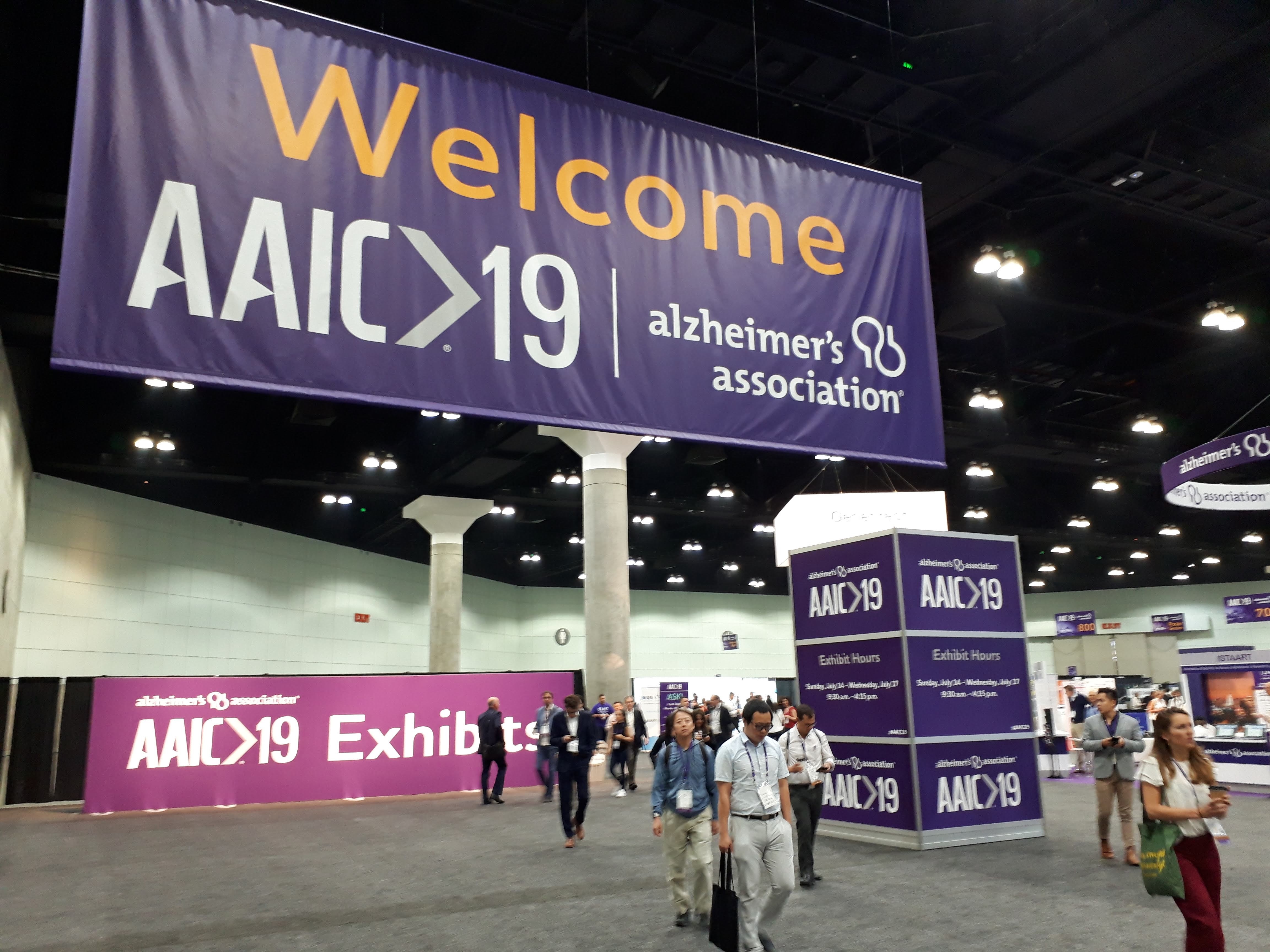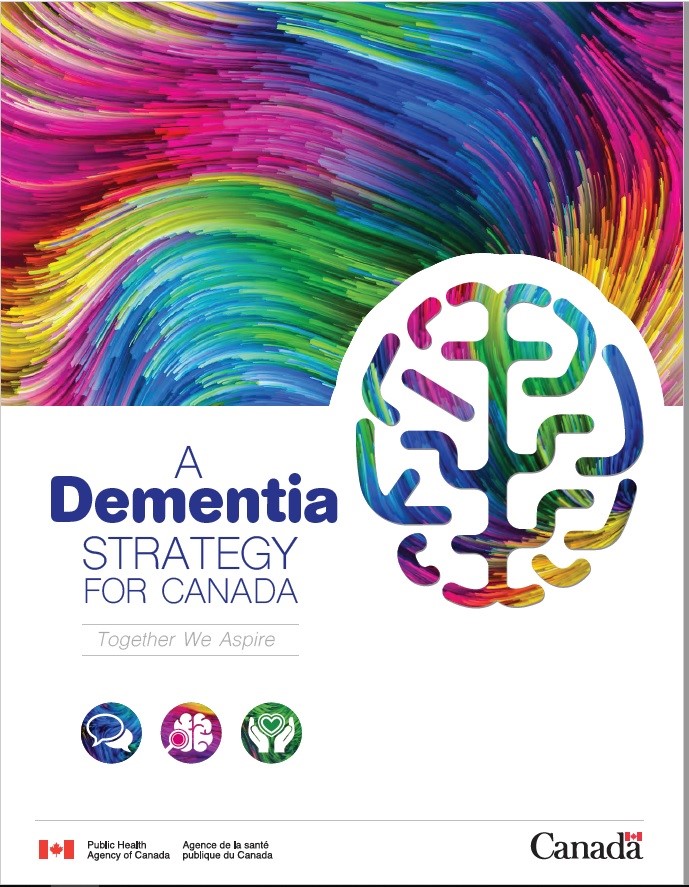[HGPI Policy Column] No. 3 – from the Dementia Policy Team-
date : 9/12/2019
Tags: Dementia, HGPI Policy Column
![[HGPI Policy Column] No. 3 – from the Dementia Policy Team-](https://hgpi.org/en/wp-content/uploads/sites/2/201909-1.jpg)
In this column, I will share information on discussions about the latest policies in dementia from the July 2019 Alzheimer’s Association International Conference (AAIC) held in Los Angeles, California and the World Dementia Council meeting that took place at the same time.
The AAIC2019 – Presentations on the newest national strategies and a look at issues unique to the U.S.
The Alzheimer’s Association and the AAIC
The Alzheimer’s Association is an NPO established in the U.S. in 1980. Noting a lack of information concerning Alzheimer’s not only in society but also in the field of medicine when his wife was diagnosed with Alzheimer’s disease in 1970, founder Jerome H. Stone established the Alzheimer’s Association after recognizing the importance of providing support to people directly affected by Alzheimer’s disease and those engaged in researching it .
The AAIC is the annual general meeting of the Alzheimer’s Association. It is attended by global representatives such as researchers and doctors from the fields of basic science, clinical science, and care. There, they share research results related to the prevention and treatment of Alzheimer’s disease and for improving diagnostic practices. The main purpose of the event is for presenting reports related to basic science and clinical research, but there were also many posters and booths related to policy being exhibited.

(Presentations including speeches and posters were available at the Los Angeles Convention Center)
Canada’s first national dementia strategy presented by the Canadian government in June 2019
Of the many presentations given, the one I found most interesting was at Canada’s booth. While most of the booths were from businesses and NGOs, the Canadian government’s Public Health Agency had a booth of its own. There, I was able to hear about dementia policy in Canada from one of their representatives. Here is a brief description of the first national dementia strategy presented by the Canadian government in June 2019.
As of July 2018, 17.2% of Canada’s population of approximately 37 million was elderly people age 65 and over. The population of Canada population is one-third the size of Japan and the rate of population aging in Canada is over 10% lower than in Japan . Currently, there are about 430,000 people with dementia living in Canada, of which approximately 3% – around 13,000 people – have been diagnosed with early-onset dementia (both figures current as of 2016) .
According to the person I spoke to, Canada did not have a strategy for research and development in dementia or care guidelines for dementia, and the government, academia, civil society, and other sectors each had separate dementia strategies. There was no national strategy.
However, the importance of national strategies for dementia has grown more widely recognized internationally and in particular at the WHO. In response to such trends, Canada enacted the National Strategy for Alzheimer’s Disease and Other Dementias Act in June 2017, making a great step forward. They also established the National Dementia Conference in May 2018. This conference brings together people with dementia and their caregivers, representatives from academia and government, and specialists in medicine and nursing to hold continuous discussions on topics such as the current situation surrounding dementia in Canada, issues facing dementia, and fields to focus on in the future. These discussions between multi-stakeholders, the results of surveys and analyses conducted by various research institutions, and discussions at the Ministerial Advisory Board on Dementia led to the creation of Canada’s first national strategy for dementia. The strategy is entitled “A Dementia Strategy for Canada: Together We Aspire” and was presented in June 2019. Below is the outline for that national strategy.
===
Vision: Setting a clear path forward
The vision we hope to achieve is a Canada in which all people living with dementia and caregivers are valued and supported, quality of life is optimized, and dementia is prevented, well understood and effectively treated.
Principles
1. Prioritizing quality of life: Actions taken to implement the strategy prioritize the wellbeing of people living with dementia and caregivers.
2. Respect and value diversity: Actions and initiatives undertaken by all partners maintain an inclusive approach, with special consideration given to those most at risk or with distinct needs in support of greater health equity.
3. Respect human rights: Actions taken under the strategy respect the human rights of those living with dementia and reflect and reinforce Canada’s domestic and international commitments to human rights.
4. Evidence-informed: Partners implementing the strategy engage in evidence-informed decision making, taking a broad approach to gathering and sharing the best available knowledge and data.
5. Results-focused: Partners maintain a results-focused approach to implementing the strategy and tracking progress, including evaluating and adjusting actions as needed.
National objectives
1 Prevent dementia
1.1 Advance research to identify and assess modifiable risk and protective factors
1.2 Build the evidence base to inform and promote the adoption of effective interventions
1.3 Expand awareness of modifiable risk and protective factors and effective interventions
1.4 Support measures that increase the contribution of social and built environments to healthy living and adoption of healthy living behaviors
2 Advance therapies and find a cure
2.1 Establish and review strategic dementia research priorities for Canada
2.2 Increase dementia research
2.3 Develop innovative and effective therapeutic approaches
2.4 Engage people living with dementia and caregivers in the development of therapies
2.5 Increase adoption of research findings that support the strategy, including in clinical practice and through community supports
3 Improve the quality of life of people living with dementia and caregivers
3.1 Eliminate stigma and promote measures that create supportive and safe dementia-inclusive communities
3.2 Promote and enable early diagnosis to support planning and action that maximizes quality of life
3.3 Address the importance of access to quality care, from diagnosis through end of life
3.4 Build the capacity of care providers, including through improved access to and adoption of evidence-based and culturally appropriate guidelines for standards of care
3.5 Improve support for family/friend caregivers, including through access to resources and supports
Five pillars are essential for effective implementation of the national strategy for dementia
1. Collaboration among all governments in Canada and all organizations working on dementia-related initiatives
2. Research and innovation on prevention, therapies and a cure, and quality of life
3. Surveillance and data to improve understanding of the impact of dementia in Canada and to identify and support efforts that are effective
4. Information resources that are accessible and evidence-based
5. A skilled workforce now and into the future to provide quality dementia care and pursue the research and innovation priorities ahead
===
Upon examination, it is clear Canada’s strategy was written with a careful eye on the international trends of recent years. First, the human-rights based approach discussed in the previous column is included in its five principles. Its emphasis on improving the quality of life for people with dementia and their caregivers also addresses an urgent need. For this, Canada could be called a trendsetter in international dementia policy.
Also, Canada has taken a clear position on the topic of identifying preventable risk factors as shown by the objective “Prevent dementia,” reflecting the results of the latest research which taught us that some of the various risk factors for dementia can be prevented while some cannot.
I asked the representative at the booth if they knew about Japan’s policy for dementia. Unfortunately, they did not, so I provided a copy of the English pamphlet on dementia in Japan from Japan Health Policy Now (JHPN). JHPN is a platform operated by HGPI for providing information on health policy in Japan in both Japanese and English. I have continued to exchange information with that person after returning to Japan. If there is anything to share in the future, I would like to cover it in this column.

(Cover, Canada’s National Dementia Strategy, “A Dementia Strategy for Canada: Together We Aspire”)
Other topics from the AAIC
Various sessions and posters at the conference taught me about unique situations facing the U.S. that are not often discussed at academic societies in Japan, so I would like to give a brief description of a few of them.
In a study that examined the relationship between the decline in motor ability that accompanies the progression of Alzheimer’s disease and driving performance, various comparisons by age, gender, educational history, and other factors showed that African-Americans experienced greater declines in motor ability compared to Caucasians.
In the literature on health preservation activities, it was reported that dementia-friendly churches are growing more important in recent years. When people with dementia or their family members make the effort to attend church, they have trouble following along with worship activities and can become isolated in their communities. To overcome this problem, many interviews were conducted with people with dementia, their caregivers, people involved in the church, and community members to identify five elements of dementia-friendly churches and to create guidelines that are actively being followed.
1. Resourceful (Is sufficient information available?)
2. Welcoming and Friendly (Is it easy for people with dementia and their caregivers to feel welcome and make friends?)
3. Inclusive and Comfortable (Is the church inclusive and comfortable?)
4. Understanding and Accepting (Is the church understanding and accepting?)
5. Connected about Personal Well-being (Are they feeling happy?)
Changes made after implementing these five guidelines lowered psychological hurdles facing people with dementia and their families. These efforts have created a strong foundation for the acceptance of dementia in local communities and churches.
World Dementia Council 14 Report
Finally, I would like to report on the WDC meeting that was held at the same time as the AAIC19. As introduced in our first column, the WDC was established under the leadership of Prime Minister Cameron from the U.K. after the G8 Dementia Summit in 2013. HGPI Chairman Dr. Kiyoshi Kurokawa is a member of the WDC and he attended the meeting together with Ms. Emi Yoshimura and Mr. Shunichiro Kurita from HGPI. Below is an excerpt from Ms. Yoshimura’s report on the WDC14. The full report can be found on the HGPI website.
===
The meeting began with an opinion exchange session on the two projects being conducted by the WDC this year, the Project for Gathering Evidence on Dementia-friendly Communities and the International Meeting on Data-sharing. These projects aim to address items identified by the communique presented at the G8 Dementia Summit in 2013 which led to the launch of the WDC. The projects were established to reinforce the areas of focus decided on at the previous WDC meeting – namely research, care, risk reduction, and communication – and to reflect the WDC’s intent to pursue both social and scientific approaches for handling the issue of dementia.
The members then held a frank discussion on the agenda for the WDC to focus on until 2021. The wide-ranging discussion covered a variety of fields in which the WDC must play a part and shoulder responsibility through long-term commitments, such as the development of a cure or a disease-modifying therapy for dementia by 2025 (a goal set by the communique issued by the 2013 G8 Dementia Summit); research and development related to prevention, risk reduction, and diagnosis; and the importance of caregiving.
===

(Experts from various fields gathered at the WDC from around the world and participated in a frank and open discussion that surpassed the boundaries of the individual position.)
Summary – The significance of examining international trends when researching policy
Now more than ever, it is necessary that we understand international trends when conducting policy research, and not only in the field of dementia. While there are many reasons for this, one particular reason is that we must know trends in order to make comparisons. To give a simple example, when shopping, whether at a storefront or online, we make sure to check popular items and best-sellers. Sometimes we buy the item that we originally intended to buy, but there are also times when we change our mind and buy an item that is currently popular instead. By knowing current trends, it enables us to know our priorities in the decisions we make. We can review our own decisions and, sometimes, obtain peace of mind about decisions we made in the past.
Unlike local governments which frequently compare themselves to one another, people aiming to create national policy cannot conduct domestic comparisons. Therefore, to understand Japan’s position in the world, it is important that we pay close attention to policies created in fields of interest in countries overseas. While this naturally includes comparing ourselves to other countries, by no means should we import every single idea from abroad. No matter the field, the foundation of any given policy varies between countries or regions due to differing frameworks, social environments, and cultural backgrounds. Therefore, we cannot expect to solve our problems by simply implementing the same policy as another country.
In addition, I believe that when researching policies and their content, it is important to compare processes as well. As I wrote in my personal introduction on the Designing for Dementia Hub website, I believe that policy cannot always set us in the perfect direction. This is because the beliefs and positions of each stakeholder affected by a policy are different. Simply put, it is extremely difficult to create consensus among all stakeholders and create a policy that satisfies everyone because there are no right answers. However, this is exactly why it becomes important to ask if various opinions were heard in the policy creation process if the opinions of people in various positions were gathered and if there was a process to examine each opinion. When a policy has been finalized after going through a rigorous process like this, I believe it is then our responsibility to cooperate in achieving the goal of that policy.
[Reference materials]
Alzheimer’s Association. “Our Story.” https://www.alz.org/about/our_story (Retrieved August 15, 2019).
Statistics Canada. “Canada’s population estimates: Age and sex, July 1, 2018.” https://www150.statcan.gc.ca/n1/daily-quotidien/190125/dq190125a-eng.htm?HPA=1&indid=4236-2&indgeo=0 (Retrieved August 15, 2019).
Canadian Institute for Health Information. “Young-onset dementia.” https://www.cihi.ca/en/dementia-in-canada/spotlight-on-dementia-issues/young-onset-dementia (Retrieved August 15, 2019).
Livingston et al. 2017. “Dementia prevention, intervention, and care,” The Lancet, 390. https://www.thelancet.com/journals/lancet/article/PIIS0140-6736(17)31363-6/fulltext
Babulal, Ganesh. 2019. “The Effect Of Race On Driving Performance, Self-Reported And Naturalistic Driving Behavior Among Older Adults,” AAIC2019.
Epps, Fayron. 2019. “Creating Dementia-Friendly Faith Villages To Support African-American Families,” AAIC2019.
[Introducing the author]
Shunichiro Kurita (Senior Associate, Health and Global Policy Institute / Steering Committee Member, Designing for Dementia Hub)
WDC14 Report
Eri Yoshimura (Manager, Health and Global Policy Institute)
Top Research & Recommendations Posts
- [Policy Recommendations] The Path to a Sustainable Healthcare System: Three Key Objectives for Public Deliberation (January 22, 2026)
- [Research Report] Perceptions, Knowledge, Actions and Perspectives of Healthcare Organizations in Japan in Relation to Climate Change and Health: A Cross-Sectional Study (November 13, 2025)
- [Research Report] The 2025 Public Opinion Survey on Healthcare in Japan (March 17, 2025)
- [Policy Recommendations] Reshaping Japan’s Immunization Policy for Life Course Coverage and Vaccine Equity: Challenges and Prospects for an Era of Prevention and Health Promotion (April 25, 2025)
- [Research Report] The 2023 Public Opinion Survey on Satisfaction in Healthcare in Japan and Healthcare Applications of Generative AI (January 11, 2024)
- [Research Report] AMR Policy Update #4: Cancer Care and AMR (Part 1)
- [Policy Recommendations] Developing a National Health and Climate Strategy for Japan (June 26, 2024)
- [Public Comment Submission] “Assessment Report on Climate Change Impacts in Japan (Draft Overview)” (December 24, 2025)
- [Research Report] Survey of Japanese Physicians Regarding Climate Change and Health (December 3, 2023)
- [Research Report] The Public Opinion Survey on Child-Rearing in Modern Japan (Final Report) (March 4, 2022)
Featured Posts
-
2026-01-09
[Registration Open] (Hybrid Format) Dementia Project FY2025 Initiative Concluding Symposium “The Future of Dementia Policy Surrounding Families and Others Who Care for People with Dementia” (March 9, 2026)
![[Registration Open] (Hybrid Format) Dementia Project FY2025 Initiative Concluding Symposium “The Future of Dementia Policy Surrounding Families and Others Who Care for People with Dementia” (March 9, 2026)](https://hgpi.org/en/wp-content/uploads/sites/2/dementia-20260309-top.png)
-
2026-02-05
[Registration Open] (Webinar) The 141st HGPI Seminar “Current Status and Future Prospects of Korea’s Obesity Policy: Voices of People with Lived Experience in Policy Promotion” (March 3, 2026)
![[Registration Open] (Webinar) The 141st HGPI Seminar “Current Status and Future Prospects of Korea’s Obesity Policy: Voices of People with Lived Experience in Policy Promotion” (March 3, 2026)](https://hgpi.org/en/wp-content/uploads/sites/2/hs141-top-1.png)
-
2026-02-06
[Research Report] AMR Policy Update #5: Cancer Care and AMR (Part 2)
![[Research Report] AMR Policy Update #5: Cancer Care and AMR (Part 2)](https://hgpi.org/en/wp-content/uploads/sites/2/HGPI_20260204_AMR-Policy-Update-5.png)




